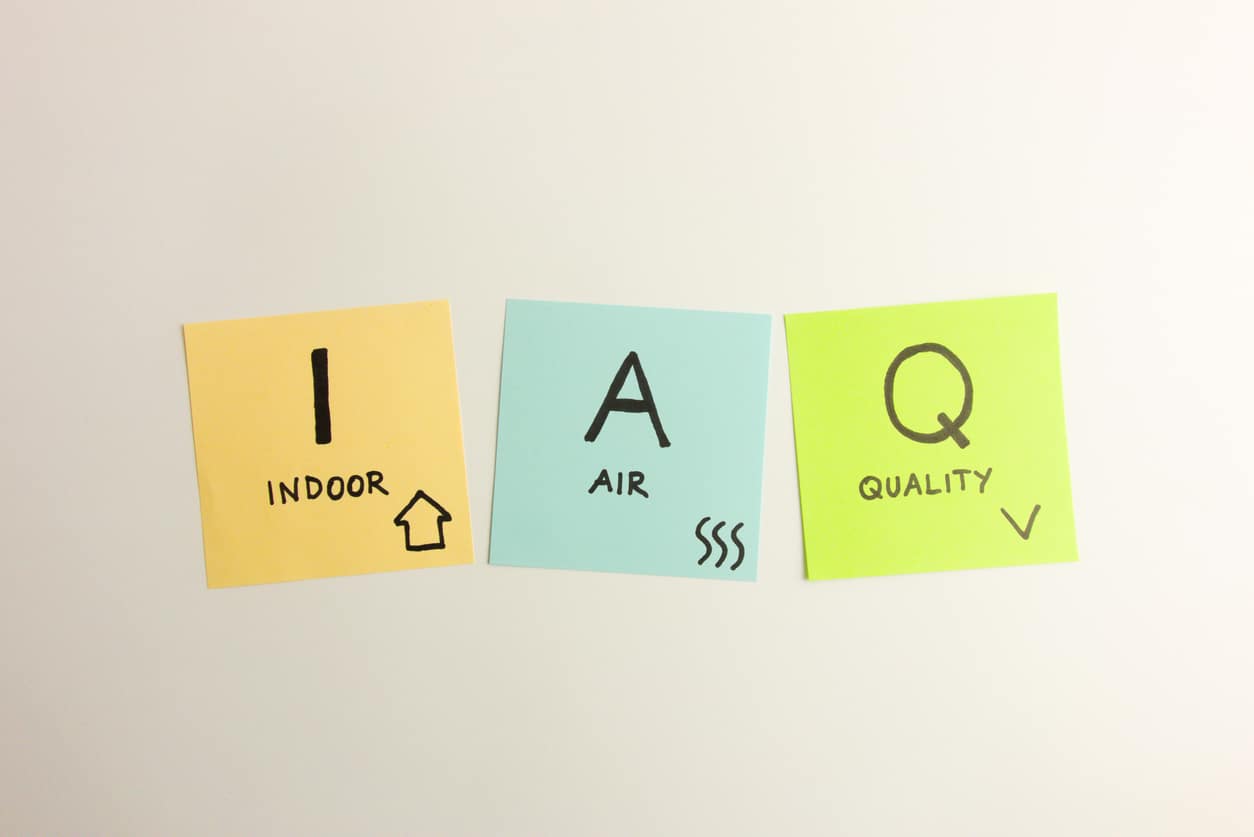Learn how to troubleshoot AC problems in this guide from 1st Class Heat & Air. We offer 10% off AC repair and have the skills to get the job done right!
What is an Air Conditioner Drain Line?
AC drain lines are responsible for eliminating built-up water and moisture inside the unit (condensation) while it is providing cool air. AC drain lines are, however, one of the most common air conditioner parts prone to damage and clogs if they are not maintained properly. It is not uncommon for AC drain lines to become clogged during the summer months. If you have an AC in your house, it is your responsibility to keep the drain lines clean and free of clogs to avoid any damage and ensure greater efficiency from your system.
Signs Your Air Conditioner Drain Line is Clogged
- Standing Water. One of the most common signs of a clogged air conditioner drain line is standing water. Apart from standing water, you might also notice dripping water. Even if you spot only a small amount of standing water, don’t delay in contacting an HVAC expert. Any amount of water where it shouldn’t be is cause for concern and should be troubleshooted as soon as possible.
- Water Damage. Even if you don’t see any visible water, you might notice areas of water damage that indicate a hidden leak. Watch for brown spots around AC units, fans, ceilings, walls, and floors. If you notice any water damage, don’t delay in contacting a professional, as the problem will only continue to get worse with time.
- Full Pan. A full drain pan, or one that continually fills up, is yet another major sign of a clogged air conditioner drain line. If this matter isn’t taken care of properly, it can eventually lead to mold growth and damage to your air conditioner.
- Mold Growth. If you have observed a moldy smell around the house, it could be an indication of a problem in the central air system. If it is not taken care of promptly and properly, it might prove to be harmful to your health.
How to Prevent AC Drain Line Clogs
- Clean Regularly. One of the best things you can do to prevent the AC drain line from being clogged is to clean it regularly. You should clean the system twice each year depending on the weather conditions in your area. If you live in an area with high humidity, you need to be more frequent with the cleaning process. You may either hire a professional or do the cleaning yourself.
- Get Bleach or Vinegar. Air conditioner drain lines can be regularly cleaned by pouring bleach or vinegar in the mouth of the drain. If you are using bleach or vinegar to clean, you should be doing so every three or six months. This can help prevent the growth of harmful materials and help kill mold growth and algae.
- Get High-Quality Air Filters. It may be tempting to choose cheaper options when it comes to air filters, but they may not actually save you much in the long run. You should choose an air filter that is not only friendly for your pocket but for your air conditioner as well. High-quality air filters can prevent the drains from getting clogged. They can help keep away the dust particles and other harmful substances off the evaporator coils. Even though you’ve opted to get some high-quality air filters, you should make sure to change them regularly. This ensures that they can function properly. Your habits determine how many times you should be changing the air filters. If you have pets around your house, you should be more frequent with changing air filters.
- Schedule Regular Maintenance. Regular maintenance by HVAC professionals can help prevent the AC drain lines from being clogged and increases the lifespan of your system. It will ensure that the system functions properly in the coming years. Make sure to reach out to an expert AC technician who can check your system thoroughly and prevent potential problems. While you may control some problems, the bigger issues should be left to a professional.
How To Remove a Large Clog From an AC Drain Line
If you have encountered a large clog around the AC drain pipe, follow these easy steps to clean it:
- Switch off your HVAC system
- Reach out to the cleaning port to unclog the system
- After opening the port, pour some solution into it to keep the drain line working
- Once done, put back the cap and turn on the system
Sometimes, it may be tough to manage all of it on your own, either because it’s just overwhelming or you don’t have the time to take care of it yourself. Thus, you may prefer reaching out to professionals. Make sure to choose a reliable HVAC technician who can help you with easy and fast cleaning. If you live in Texas, the HVAC company you can contact is 1st Class Heat & Air. Our team provides friendly, affordable, and quick service all around Texas.
For fast, reliable AC & heating repair, service, installation, or sales, contact the professionals at 1st Class Heat & Air. We offer after-hours AC repair and can provide help for AC compressor failure seven days per week. Call us today at 972-673-0408 .

